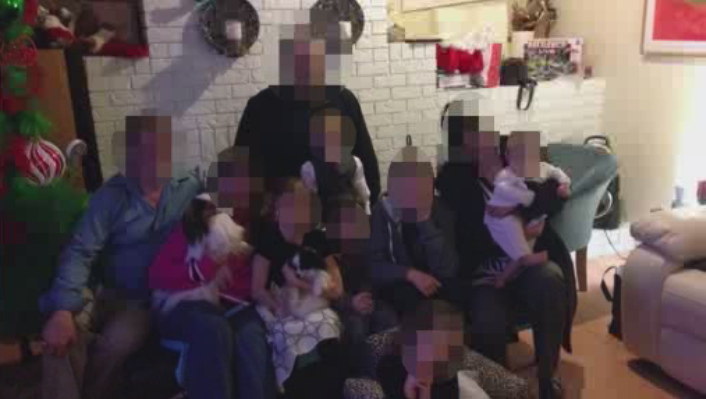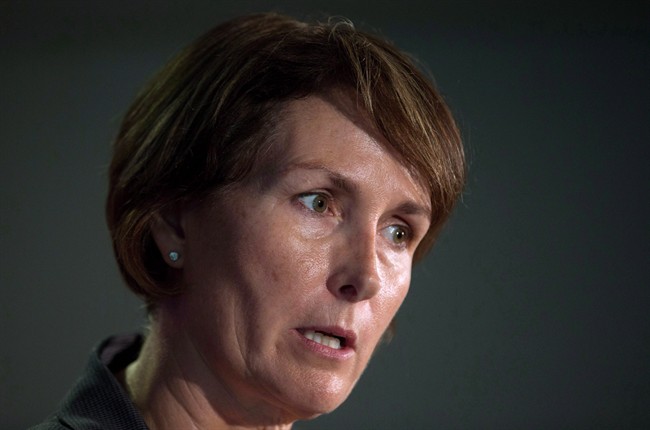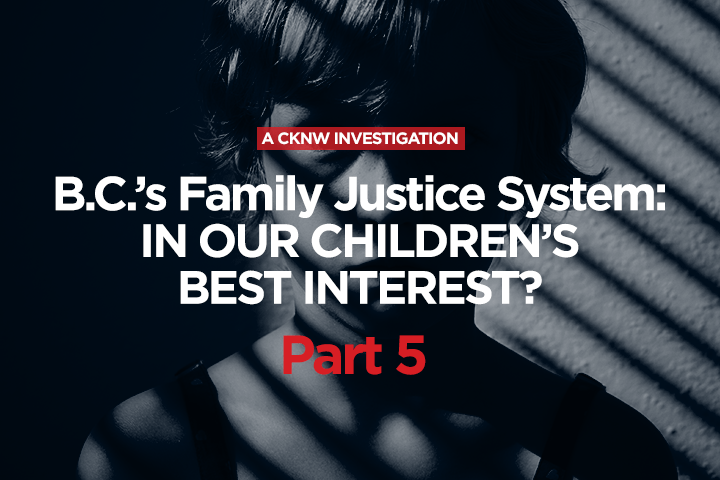The B.C. Court of Appeal’s stunning reversal of a lower court decision that found the Ministry of Children and Family Development (MCFD) allowed a Vancouver father to sexually abuse his kids is highlighting some major gaps in the justice system.

For more than two years, the case of a B.C. family at the centre of a controversial court judgment against the province’s children’s ministry has gripped people’s attention across the province.
READ PART 1: How ‘flawed’ B.C. court rulings tore 4 kids away from their dad for 5 years and counting
Public anger against the ministry and its minister boiled over when a judge found that social workers allowed a father to sexually abuse his children.
The finding forced the government to launch a review of the case. A preliminary version has been released, but not the full review.
READ PART 2: The B.C. judge who ‘ignored evidence,’ ‘erred in law’ and put a ministry under fire
Then, in August, the B.C. Court of Appeal issued a stunning reversal that threw out the lower court decisions in the case, and with them, the findings of abuse and wrongdoing… all thanks to fraudulent expert evidence.
READ PART 3: The family lawyer whose zealous advocacy missed ‘obvious red flags’ and helped an unfair trial proceed
The matter is still before courts, awaiting either a new family trial or a chance to be heard in Canada’s highest court — but it highlights a serious problem with our family justice system.
READ PART 4: The B.C. dad who couldn’t afford a lawyer, couldn’t get legal aid, and lost access to his kids

In the final part of a CKNW special investigation, reporter Charmaine de Silva uncovers how this case highlights why our system is ill-equipped to deal with families at their breaking point.
‘The longest child welfare, civil litigation, family custody fight in the history of Canada’
“If you want to see in one big picture, in one case, all the failures, all the flaws of the system, chronologically almost, you go to this case.”
That was how Mary Ellen Turpel-Lafond, B.C.’s former children’s watchdog, summed up the case of J.P., her ex-husband B.G., and their four kids. The parents’ names cannot be revealed due to a publication ban.
Turpel-Lafond called their case the “longest child welfare, civil litigation, family custody fight in the history of Canada.”

The high-conflict family dispute has allegations of physical and sexual abuse, mental health issues, and has left children in the middle of a years-long custody battle.
In that time, the kids have been through appointments with psychologists and physicians, two lengthy and separate court battles and an appeal that tossed it all aside.

Get daily National news
As a result, the children have had no contact with their father for five years, and none of this is over yet.
But how did the situation spin out of control?
There were warning signs from the beginning, before courts became involved.
June to October 2009
The Ministry of Children and Family Development (MCFD) received numerous calls about the family between June and October 2009 expressing concern about the children’s safety, and about issues between the parents.
The ministry assigned their file to a team that addresses immediate and short-term matters with families.
But the situation reached a tipping point on Oct. 5, 2009 when J.P., the mother, called 911 alleging that B.G. had assaulted her and was hurting their kids.
B.G. was arrested, removed from the home and subject to a number of conditions.
The ministry was investigating the family by this point — but nothing had actually been done yet.
TIMELINE: The longest child welfare, civil litigation in the history of Canada
‘A failure to support families’
It appears that social services intervened with this family too late, said Erez Aloni, a University of British Columbia law professor who specializes in the regulation of adult relationships and complex family structures.
“I’m not going to bash here social services or social workers, absolutely not,” he said. “But there seems to be that there is a kind of a failure to support families, if they reach such situations.”
Intervening with a family requires resources — and the system was seriously cash-starved by the time that J.P. and B.G.’s case came up.
- At least 9 Toronto police officers arrested in organized crime investigation: sources
- Former Nova Scotia health care CEO sentenced for defrauding children’s hospital
- Jill Biden’s ex-husband William Stevenson charged with murder in wife’s death
- She went missing in Canada in 1985. She may have been a Florida serial murder victim
READ MORE: Father denies abuse in appeal documents
At the time, Turpel-Lafond said funding for the child safety system was “cut to the wick.”
She used J.P. and B.G.’s case to blast the ministry after Justice Paul Walker issued his July 2015 ruling — later overturned in August 2017 — that social workers had allowed the father to sexually abuse his children.
And she didn’t mince words.
“This case is a litany of examples of where when a problem arose, they continued with tunnel vision and they found evidence to support their tunnel vision,” she said at the time.
“That is not appropriate in criminal justice. It’s not appropriate in child welfare, and kids were actually harmed here.”
Public outrage grew over Walker’s decisions in the case.
The then-BC Liberal government hired retired civil servant Bob Plecas to review the circumstances surrounding J.P. and B.G.’s case.
Plecas’ preliminary report, released nearly two years ago, criticized Turpel-Lafond, the media and the Official Opposition for what he called a “culture of blame” within the children’s ministry.
And the NDP repeatedly used J.P. and B.G.’s case to attack the government.
“Children were put at risk. Bad decisions were made. Judgments were overruled and disregarded,” then-opposition leader John Horgan said at the time.
Now, both he and Turpel-Lafond are more cautious about their remarks on the case.
Turpel-Lafond said confidentiality prevents her from commenting on its specifics, and Horgan has said little about it since the August ruling save that “the new judgment provides greater clarity.”
More money for the children’s ministry
Plecas also recommended that the MCFD receive an additional $50-million in annual funding.
In 2016, the BC Liberal government announced a $72-million funding boost; a year later it committed an additional $145-million to the ministry’s budget to overhaul the system.
Today, the MCFD’s budget is almost $1.6-billion, about $250-million less than a decade ago, though the province says a number of programs and services, along with their funding, have been moved to other ministries.
The BC NDP have committed to maintaining current funding levels, but they haven’t committed to allotting more cash.
A well-funded child welfare system could have helped J.P. and B.G.’s family by giving feedback and recommendations on where to go for help.
Instead, they turned to the court system, as people often do when their relationships enter troubled waters, but Turpel-Lafond said that can make things worse.
READ MORE: MCFD staff rally in Downtown Vancouver to demand change
“The adversarial system is a very harsh system for children… and the Solomon’s justice that results… doesn’t result in much of a victory in their lives, no matter what the outcome.”
The court’s adversarial nature is a part of the problem, according to John-Paul Boyd, executive director of the Canadian Research Institute for Law and the Family.
“It’s difficult for me to imagine a dispute resolution process which could be any worse than the court system for family law disputes,” he said.
Deanne Sowter, a law professor at the University of Calgary, said families should consider alternative dispute resolution (ADR) and mediation before going to court.
These options are offered, but not promoted as recommended or mandated first steps in B.C.
In an ADR process, one party isn’t seeing the allegations being levelled by the other as they do in a trial situation.
“That right there just inflames things, it derails things, it angers things,” Sowter said.
READ MORE: B.C. mom who claims ex-husband sexually abused children asks Supreme Court of Canada to hear case
The province is currently looking to change family court rules to promote more dispute resolution and mediation, but not everyone agrees it will help.
For example, one can’t create a level playing field within an abusive relationship, said Angela Marie MacDougall, executive director of Battered Women’s Support Services.
She’s concerned about any changes that would force abused women to engage in mediation with their abusers.
“These processes just cannot recognize the continued impact of violence and the nature of power control dynamics involved in abusive relationships,” she said.
It is, however, widely acknowledged that the system is not working in its current form and that it’s costing taxpayers a lot of money.
J.P. and B.G.’s case, by the numbers
The family case involving J.P. and B.G. has eaten up 242 days of court-time in both the B.C. Supreme Court and the Court of Appeal.
The family trial took 91 days; the civil trial took 146 days; hearings for the appeal took another five days.
None of this accounts for the time that judges spent looking at applications or writing their decisions.
“This is one case,” Turpel-Lafond said. “We certainly wouldn’t want to have another 300-, 400-day case. It’s a cause for soul searching.”
That type of concern is enough to make some families in crisis simply walk away.
“There’s something about taking the path of least resistance, because it’s not just financially overwhelming,” said Nancy Merrill, second vice-president of the Law Society of B.C. and chair of its Legal Aid Advisory Committee.
“It’s emotionally exhausting and it’s very stressful for people.”
B.G. could have walked away when he didn’t have the money to afford a lawyer, when he couldn’t have contact with his children, and when he ended up in a legal battle that lasted eight years.
He didn’t, and that’s why this story can be told.
READ MORE: B.C. government says judge ignored evidence
If a new trial happens, and it determines that the findings against B.G. were well-founded, it won’t change the fact that the system failed this family and that there are other families like this one.
The details of their cases may not be as shocking, but those families are still being left devastated and forced to navigate a system that’s not equipped to deal with complex family problems.












Comments